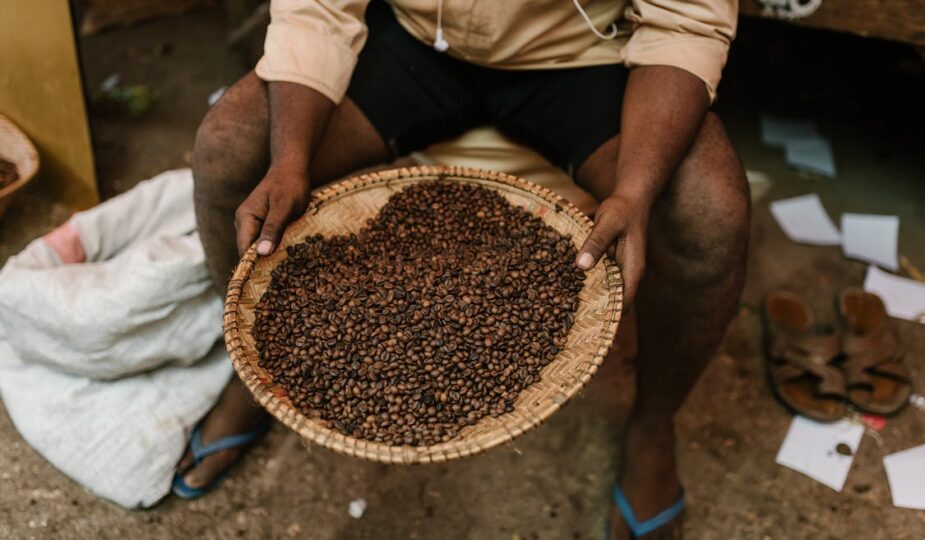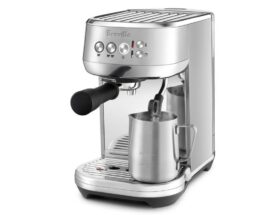
How to Brew the Best Arabic Coffee at Home
Welcome, coffee aficionados! Prepare to embark on a flavorful journey that will transport you to the heart of the Middle East. When you brew Arabic coffee, every grain tells a story, every sip unravels a millennia-old tradition, and every aroma wafting from your cup beckons your senses to explore far-off lands. Care to join us as we unveil the secrets of brewing the best Arabic coffee at home?
Table of Contents
- The Essential Equipment to Brew Arabic Coffee
- Checklist of Equipment
- Step-by-Step Guide to Brewing Arabic Coffee at Home
- Frequently Asked Questions
- 1. What is Arabic Coffee, and how is it different from regular coffee?
- 2. Can I make Arabic Coffee at home?
- 3. What ingredients do I need to brew Arabic Coffee?
- 4. What equipment do I need to make Arabic Coffee?
- 5. How do I brew Arabic Coffee?
- 6. How should Arabic Coffee be served?
- 7. Can I add milk or sugar to my Arabic Coffee?
- Seal the Aroma: Conclusion
Did You Know? An Interesting Tidbit to Start Your Brew Journey!
Before we delve into the process of brewing, let’s whet your appetite with a fascinating fact about Arabic coffee, or ‘Gahwa’. Did you know that traditionally, Gahwa was not originally served as a morning drink but instead, as a token of hospitality to guests? When hosts wanted to show their respect and warmth to their guests, they prepared Gahwa. Such is the social relevance of Gahwa that it was included in UNESCO’s list of intangible cultural heritage in 2015! As we guide you on your home-brew journey, you’ll be reviving this deep-rooted tradition yourself.
The Essential Equipment to Brew Arabic Coffee
Before we dive into the brewing process, let’s take a moment to round up the essential tools you’ll need to bring the authentic taste of Arabic coffee, or ‘Gahwa’, into your home.
Traditional Arabic Coffee Pot (Dallah)
At the heart of the brewing process is the Dallah. This traditional Arabic coffee pot has a unique shape that helps in the brewing process, and it adds an authentic touch to your coffee experience.
Freshly Roasted Arabic Coffee Beans
Arabic coffee beans are lighter in color and have a more delicate flavor profile than their Western counterparts. They’re usually roasted with spices, such as cardamom, for that distinctive Gahwa flavor.
Coffee Grinder
You’ll need a good quality coffee grinder to grind your freshly roasted beans. Remember, the finer the grind, the stronger the flavor.
Heat Source
Arabic coffee is traditionally brewed over an open flame. However, a regular stove-top will work just fine.
Arabic Coffee Cups (Finjan)
These small, handle-less cups are the traditional vessels for serving Arabic coffee. It’s all part of the experience!
Checklist of Equipment
Here’s a quick checklist for you to refer to:
- Traditional Arabic coffee pot (Dallah)
- Freshly roasted Arabic coffee beans
- Coffee grinder
- Heat source
- Arabic coffee cups (Finjan)
Now that we have all the necessary equipment, let’s dive into the brewing process!
Step-by-Step Guide to Brewing Arabic Coffee at Home
If you’re new to brewing Arabic coffee, or Gahwa, don’t worry! We’ve got you covered with this detailed step-by-step guide:
Purchase the Right Beans
First things first, you need to start with the right beans. Arabic coffee is traditionally prepared with lightly roasted beans. Look for beans labeled as “Arabic” or “Middle Eastern” at specialty coffee shops or online.
Grind Your Beans
For Arabic coffee, you want your beans ground to a fine powder. If you don’t have a grinder at home, most coffee shops will be able to grind your beans for you.
Choose Your Spices
Arabic coffee is often flavored with traditional spices like cardamom, cloves, and saffron. Experiment with different combinations to find what you like best!
Boil the Coffee
Unlike other types of coffee, Arabic coffee is boiled, not brewed. Add your coffee and spices to a pot of water and bring to a boil. Once boiling, reduce the heat and let simmer for 10-15 minutes.
Serve and Enjoy!
Finally, pour your coffee into a traditional dallah or small cups. Arabic coffee is typically served without sugar, but you can add a little if you prefer.
Frequently Asked Questions
1. What is Arabic Coffee, and how is it different from regular coffee?
Arabic Coffee, also known as Gahwa, is a unique concoction steeped in tradition. Unlike regular coffee, it incorporates a blend of high-quality Arabica beans, cardamom, and sometimes saffron, yielding a distinct, rich flavor. The process of brewing Gahwa is an art in itself, requiring patience and precision.
2. Can I make Arabic Coffee at home?
Absolutely! While the brewing process may seem intricate initially, with the right tools and a bit of practice, anyone can master the art of making Arabic Coffee at home. It’s a delightful way to explore new flavors and cultures right from your kitchen.
3. What ingredients do I need to brew Arabic Coffee?
At a minimum, you’ll need high-quality Arabica coffee beans and green cardamom. Some variations include saffron or cloves for an extra kick of flavor. Here’s a quick rundown:
- Arabica coffee beans
- Green cardamom
- Saffron (optional)
- Cloves (optional)
4. What equipment do I need to make Arabic Coffee?
To brew Gahwa, certain tools can help you achieve an authentic taste:
- A coffee grinder for freshly ground beans
- A dallah, a traditional Arabic coffee pot
- Finjan, small cups specifically used for serving Arabic coffee
5. How do I brew Arabic Coffee?
Brewing Arabic Coffee involves a series of steps, each crucial to achieving the perfect cup. To start, you’ll need to roast and grind your coffee beans, infuse them with cardamom, and brew the mixture in a dallah. For a detailed guide, check out our blog post on how to brew Arabic Coffee at home.
6. How should Arabic Coffee be served?
Traditionally, Arabic Coffee is served in small quantities in a finjan. The host pours the coffee from the dallah into the finjan, starting with the eldest guest as a sign of respect. Typically, it’s enjoyed without sugar and paired with dates or sweets to balance the coffee’s strong flavors.
7. Can I add milk or sugar to my Arabic Coffee?
Arabic Coffee is traditionally enjoyed without milk or sugar, allowing the rich aromas of the coffee and spices to take center stage. However, coffee is a personal experience and feel free to experiment with flavors that align with your taste buds.
Seal the Aroma: Conclusion
There you have it! The art of brewing the perfect Arabic coffee, or Gahwa, unveiled right before your eyes. Now it’s your turn to embark on this flavorful journey. Remember, practice makes perfect. With each brew, you’re not just making a beverage; you’re creating a sensory experience, keeping a rich cultural tradition alive.
Enliven your coffee routine; indulge in the delightful notes of cardamom, saffron, and rose water. Remember, the magic lies in the right balance. Don’t forget to share your brewing stories. We’re excited to hear about your trials, triumphs, and tasteful adventures.
Join the Coffee Conversation
Have you tried the Gahwa brewing method yet? What was your experience? Here at Ten Coffees, we cherish lively conversations and shared experiences. We invite you to leave a comment below and jump into the discussion! Who knows, your tip might just be the secret ingredient to another person’s perfect brew. Happy brewing!









